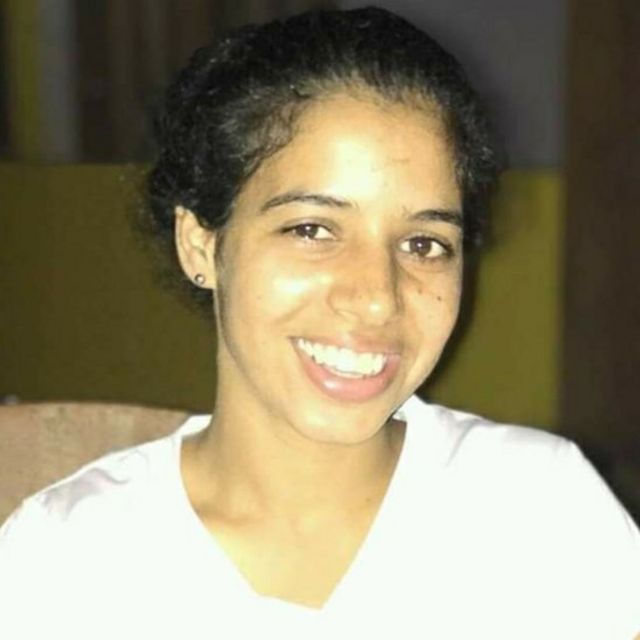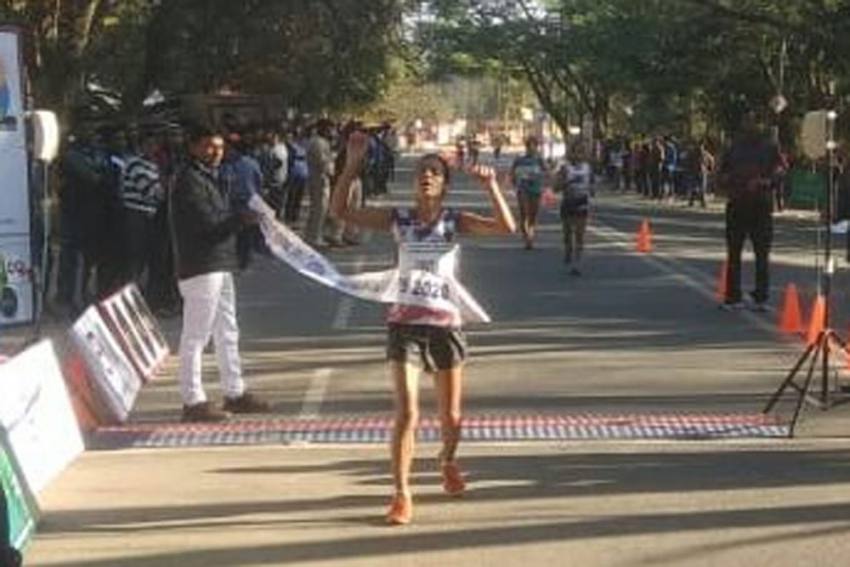Note: Bhawna’s story is part of my upcoming book, ‘Rings to Cubicles‘ which covers inspiring stories of Olympians for their grit, determination and sportsmanship.

Imagine shaving off 8 minutes from your personal best timing in a sport? That’s the feat Bhawna did to qualify for 20 km racewalking at Tokyo Olympics in 2020. Bhawna not only qualified for the Olympics with a stunning 1:29:54 ( the qualifying cut off was 1:31:00), she also set a new national record. Two years back, at the National Championship, she was slower by over 23 minutes. Now to be India’s best racewalker is some solid improvement.
Bhawna was born on 3 January 1996 as the youngest of three children to a family of farmers in a remote village of Kabra, Rajsamand district in Rajasthan, India. Her dad is a farmer. For much of her younger days, she had to support her family by grazing cattle.
Her selection of racewalking as a sport was purely due to a lack of choices. When she was 13, her physical education teacher took her along with many other students to participate in the district-level athletics competition. Much to her dismay, she found that most of the popular race categories were already filled up. The only slot available was at the 3000 meters race walk. You must understand that racewalking is a ridiculed sport in rural India. The unnatural walking motion with the swaying hips is often made fun of. Yet, with no other option left, she was forced to pick this. With zero preparation and walking barefoot, she surprised herself and her coach by coming in second. That’s how she became a racewalker.
With this newfound confidence, she started to focus on this sport and began to excel. She would wake up at 3 am to practice. This is mainly to avoid unwanted attention and misogyny from the villagers who didn’t appreciate a young girl training in shorts.
When you begin to win district level and state-level races, it helps get a government job. In 2016, she got a job with Indian Railways. She joined as a ticket collector in Howrah, West Bengal.
This job was a lifesaver for her and her family. She became the family’s sole breadwinner. In a non-glamorous sport such as race walking, it isn’t easy to get any sponsors for an individual sportsperson. She had to go through lots of financial difficulties.
Only athletes who have won at the national level and participated in international competitions can take leave from work to practice. Since she hadn’t participated in international competitions yet, she had to take leave at a loss of pay to practice. To make matters worse, she suffered from typhoid in 2017.
On top of this, her elder brother was going through an illness, and she had to borrow Rs.7 lakhs to pay for the treatment. She now had to pay Rs.16,000 per month as interest alone, and this was weighing down on her.
With no financial support, she had to spend money on her nutrition and sports gear. To participate in any competition, she had to pay from her pocket for travel and stay.
It was only in 2018 that she managed to win bronze in a competition, and that gave her the freedom to train full-time while she continued to get her salary from her job at railways. She went on to win the national championship and surprised everyone with her Olympics berth winning timing.

For a girl who was grazing cattle to become a national record holder and proudly representing India in the Olympics is a fantastic story of grit and determination.
You can read more chapters from the book, ‘Rings to Cubicles’ here. http://www.kiruba.com/tag/olympics
